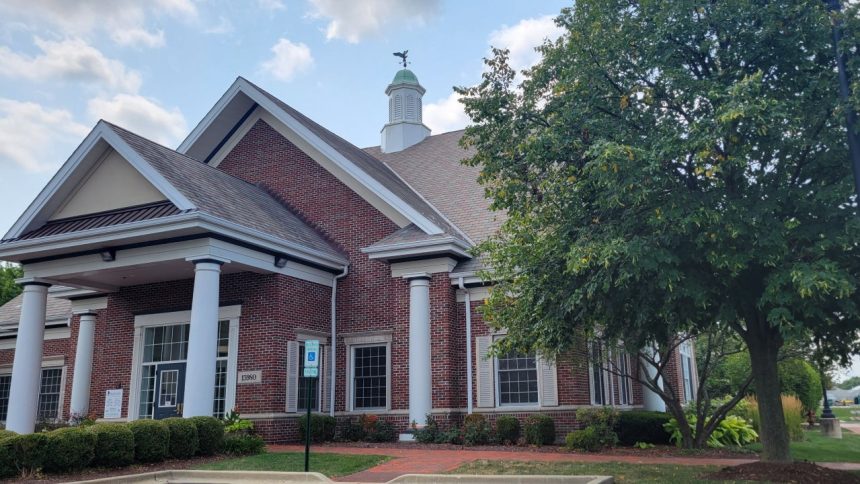Key takeaways
- A local bank typically offers products and services tailored to consumers and businesses in the community where the bank is located.
- Advantages of using such a small, neighborhood bank may include personalized service, higher deposit account rates and lower fees. These community banks often support local charitable events and organizations.
- When considering a local bank, shop around for one that meets your needs regarding branches, ATMs, rates and mobile banking capabilities.
While big banks may offer plenty of branches and sprawling ATM networks, bigger isn’t necessarily better in banking. Small banks can offer useful perks of their own, such as personalized service, better financial terms and support for their local communities.
Studies suggest a more personalized banking experience can go a long way. A 2024 J.D. Power customer banking satisfaction study found that overall branch customer satisfaction scores increased when customers were welcomed, thanked for their business and called by name.
Ultimately, each individual’s choice of where to bank is influenced greatly by their own unique needs and habits. Local banks often come with a distinct set of benefits, and here we’ll discuss what these offerings are, along with ways you can find a small bank that might be a good fit.
Comparing local banks and national banks
Big national banks come with their own set of significant benefits. Common perks associated with such banks include:
- A wide range of products and services
- Large branch and ATM footprint
- 24/7 customer service
- A robust mobile banking app with money management tools
However, big banks are often known for paying rock-bottom rates on deposit accounts, and they commonly charge monthly service fees that can eat away at your account balance.
When it comes to banking benefits, you’ll often find local banks boast quite a different set of perks than those of their larger counterparts. These may include:
- Personalized service
- Competitive rates and low or no fees
- Broader loan decision criteria, such as family history and discretionary spending, rather than using only impersonal factors such as credit score, according to the Independent Community Bankers of America (ICBA)
- Commitment to community service through supporting local charitable organizations
On the other hand, ways neighborhood banks might come up short include a limited branch footprint, shorter customer service hours and a less advanced mobile app (if one is offered at all).
Benefits of using a local bank
If you’re interested in keeping your banking business local, there are various potential benefits worth considering:
Personalized service
Perhaps an employee of your local bank is someone you went to high school with, or maybe your kids have played on the same soccer team. In this way, local banks are often known for hiring people rooted in the community. For some banking customers, familiarity breeds trust, and so they prefer a local bank.
Nearly half (47 percent) of people chose local/regional banks over large national ones because of more personalized service, according to digital marketing company BankBound, which also reports 59 percent of consumers prefer local/regional banks for overall better customer service.
Better financial terms
Big banks are generally known for offering abysmal annual percentage yields (APYs) on their deposit products. Lesser known local banks may feel the need to offer higher rates as a way to draw customers from those large banks.
Another reason smaller banks may offer higher deposit rates is that, when compared with big banks, smaller banks are made up of customers who are more sensitive to the rates they earn, according to researchers at the University of California, Los Angeles (UCLA) and other universities.
For some, the choice to go with a small bank that offers high rates can be viewed as a trade-off for the conveniences of a big bank, such as a large branch network. Along with potentially paying high rates, however, small banks might also charge fewer account fees than large banks, including monthly service fees.
Support for the local economy
When a neighborhood bank focuses on lending to local residents and businesses, this can be seen as a way of helping the community thrive.
In fact, 64 percent of Americans were more likely to have a favorable impression of community banks knowing they make 60 percent and 80 percent of small-business and agricultural loans, respectively, while reinvesting local deposits into their communities, a 2023 ICBA study found.
What’s more, a long-rooted community bank may be less likely to close its doors when times are tough — as opposed to banks that are too big to fail, which may decide to shutter a given branch if it’s not considered profitable enough.
Potential drawbacks of a local bank
While using a local bank can have its benefits, there may be some limitations, such as:
- Lower branch and ATM count: Local banks often have just one or a few branches, and they might not offer a wide network of free ATMs. This can be inconvenient for frequent travelers or customers who don’t live or work near a bank branch.
- Limited products and services: Small banks may provide just a fraction of the offerings you’ll find at many big banks, such as credit cards and investment accounts.
- Fewer mobile banking features: With smaller budgets, local banks might not have the resources to deliver mobile banking experiences as comprehensive as those offered by big banks.
How to choose a local bank
Many local banks have been around since the late 1800s, according to BankBound. You can find community banks in your area by using the search tool from the ICBA.
Another way to find a local bank is to watch for ads from these institutions. They may come in the mail or appear in your local newspaper. Such ads sometimes list introductory bonus offers for opening an account.
Credit unions are another way to bank locally
Like community banks, credit unions can be invested in the communities they serve. Some credit unions limit membership to residents of the city or county where their branches are located. Profits may stay local, with money going toward employee salaries or loans made to local businesses.
To find a credit union near you, you can use the search tool provided by the National Credit Union Administration (NCUA).
Make sure your deposits are federally insured
No matter what bank or credit union you choose, make sure your funds will be insured through the Federal Deposit Insurance Corp. (FDIC) or the National Credit Union Share Insurance Fund (NCUSIF).
Keeping your money with a federally insured institution means your funds are insured for up to $250,000 per depositor, per insured financial institution, per ownership category. This insurance guarantees your money will be safe, even if the bank or credit union goes out of business.
Bottom line
If you like to keep your business local, a community bank or credit union might be worth considering. Shopping for a bank involves evaluating what products are offered as well as APYs and fees associated with accounts.
Other factors to consider include mobile banking offerings, the location of branches and ATM availability.
Ultimately, you may find your local bank provides a mix of these features that’s right for you, along with personalized service and involvement in the community.
Read the full article here
















